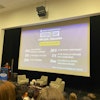Recession, Affirmative Action, Trickery: Reflections on a Bush Appointment
Federal Reserve Board Chairman Alan Greenspan says the recession is abating, but you wouldn’t know it by the unemployment rate statistics. With the unemployment rate at 5.7 percent overall, and 10.1 percent for African Americans, many Americans are alarmed about their job prospects. With companies like WorldCom laying off people in the thousands, the Enron and Arthur Andersen debacles putting at least 10,000 out of work, and with the Levi Strauss company closing plants and laying off 3,000 workers, Greenspan’s economic recovery really hasn’t trickled down.
Corporate layoffs bode ill for college students looking for jobs. In
February, the New York Times had a headline — “Not Wanted — ’02 Graduates Seeking Jobs.” It highlighted the rich climate in which students garnered signing bonuses five years ago, and contrasted it with the climate of today, one that is characterized by a retrenchment in hiring. Once, college recruiters beckoned students with incentives. Now, students are lucky to get a chance to talk to a recruiter. Some come to campus merely to maintain a presence, admitting that they have no openings, but an interest in keeping files open on outstanding prospects.
What’s a student to do? Law school applications are up 25 percent from a year ago. Other graduate school applications are on the rise, as well. Students who sniffed at unpaid internships last summer are excited about them now, mainly because they might lead to full-time jobs. Still others are taking a “year out,” opting for low-wage work and additional study while they consider their options. Competition is fierce, both for jobs and for graduate school opportunities, and people are using whatever they have to land in the right places.
This is a climate in which affirmative action matters. Some folks come to the table with a portfolio of contacts, a Rolodex brimming over with potential opportunities. Others come with little more than a transcript, which, though solid, is scant completion for that “good old boy” thing. In the workplace, in higher education, and in the apportionment of contracting opportunities, affirmative action balances out the “who you know” game. But the Bush administration, while singing an equality song, has made stealth moves to undermine affirmative action through its appointments.
In particular, in a recess appointment, President Bush named Gerald A. Reynolds, a 38-year-old Kansas City regulatory lawyer, as head of the Office of Civil Rights in the U.S. Department of Education. Reynolds knows little or nothing about educational policy but he has, according to Sen. Edward Kennedy, D-Mass., a “longstanding hostility to basic civil rights laws.”
Reynolds’ job as assistant secretary in the Department of Education is to enforce civil rights laws affecting schools and universities, including discrimination complaints, the enforcement of Title IX mandates on gender and athletics, and access for disabled students. One wonders how Reynolds can enforce laws he has staunchly opposed, especially in his roles in conservative think tanks like the Center for Equal Opportunity and the Center for New Black Leadership.
Bush gave Reynolds a recess appointment because he might not have been able to get the Senate Education committee to confirm him. The recess appointment tactic is a tried and true one to end run Congress, but it doesn’t give Reynolds a pass for the duration of the Bush administration. It only gives him sitting rights in the job until the end of the year.
Ironically, President Bill Clinton also used the recess appointment to end run a Republican Congress hostile to civil rights. He appointed Bill Lann Lee as assistant attorney general for civil rights when it became clear the Senate would not confirm him. To add to the irony, Gerald Reynolds testified against the nomination of Lee, saying Lee had a “disdain for the law.” Yet Lee enforced the laws that Reynolds eschews.
Here is how Reynolds describes affirmative action — “Affirmative action is the big lie. It is a corrupt system of preferences, set-asides and quotas, a concept invented by regulators and reinvented by political interest groups seeking money and power.” Frankly it sounds as if Reynolds is speaking of lobbyists or perhaps the employees of the Enron Corp. In any case, if he is required to enforce laws he calls “the big lie” how vigorously is he likely to be in his duties?
While civil rights advocates are outraged, President Bush is smug in his recess appointment. Giving far more priority to world events, the Reynolds appointment is little more than a political nod to those far-right forces who would click their heels three times and blast back to our nation’s racist past. The losers here are students who find themselves in a more competitive environment, hoping to secure jobs or graduate school opportunities, finding themselves locked out because of race, gender or a thin Rolodex. Reynolds ought to be the one to ensure that these young Americans have an equal opportunity. Instead, he is likely to be the one who locks the door after it has been slammed.
© Copyright 2005 by DiverseEducation.com





















